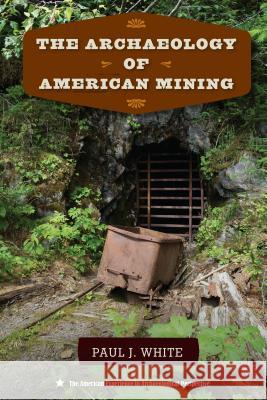The Archaeology of American Mining » książka
The Archaeology of American Mining
ISBN-13: 9780813054551 / Angielski / Twarda / 2017 / 200 str.
The Archaeology of American Mining
ISBN-13: 9780813054551 / Angielski / Twarda / 2017 / 200 str.
(netto: 286,84 VAT: 5%)
Najniższa cena z 30 dni: 299,33
ok. 30 dni roboczych
Dostawa w 2026 r.
Darmowa dostawa!
"Outstanding. Focuses on the material aspects of mining's past to understand the American experience in this economic culture."--Donald L. Hardesty, author of Mining Archaeology in the American West: A View from the Silver State "Artfully synthesizes the complexities of American mining heritage using archaeology's broad, temporal scale to generate a baseline for documenting, interpreting, and sustainably managing mining sites and landscapes. This book is a revelatory tool for archaeologists, historians, resource managers, and students."--Kelly J. Dixon, author of Boomtown Saloons: Archaeology and History in Virginia City "Offers a rarely seen synthesis of industrial archaeology, labor archaeology, and mining heritage."--Michael Roller, archaeologist, National Park Service The mining industry in North America has a rich and conflicted history. It is associated with the opening of the frontier and the rise of the United States as an industrial power but also with social upheaval, the dispossession of indigenous lands, and extensive environmental impacts. Synthesizing fifty years of research on American mining sites that date from colonial times to the present, Paul White provides an ideal overview of the field for both students and professionals. The Archaeology of American Mining offers a multifaceted look at mining, incorporating findings from an array of subfields, including historical archaeology, industrial archaeology, and maritime archaeology. Case studies are taken from a wide range of contexts, from eastern coal mines to Alaskan gold fields, with special attention paid to the domestic and working lives of miners. Exploring what material artifacts can tell us about the lives of people who left few records, White demonstrates how archaeologists contribute to our understanding of the legacies left by miners and the mining industry. A volume in the series the American Experience in Archaeological Perspective, edited by Michael S. Nassaney











